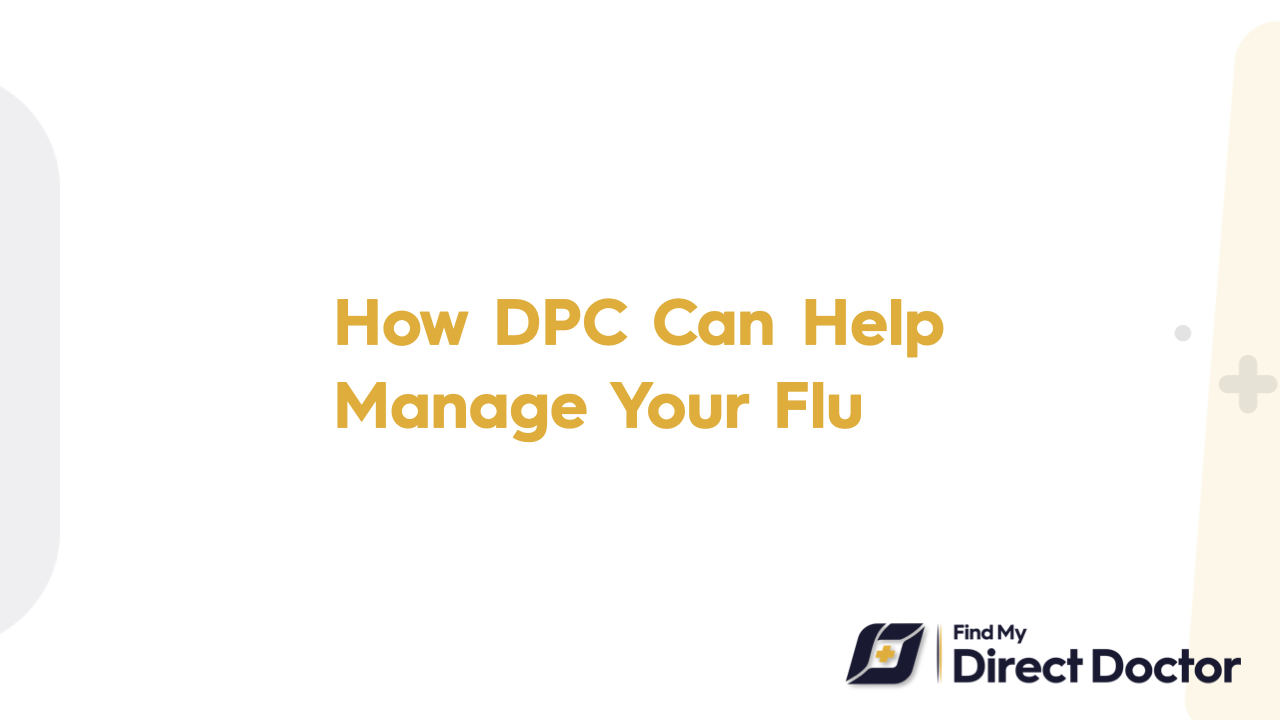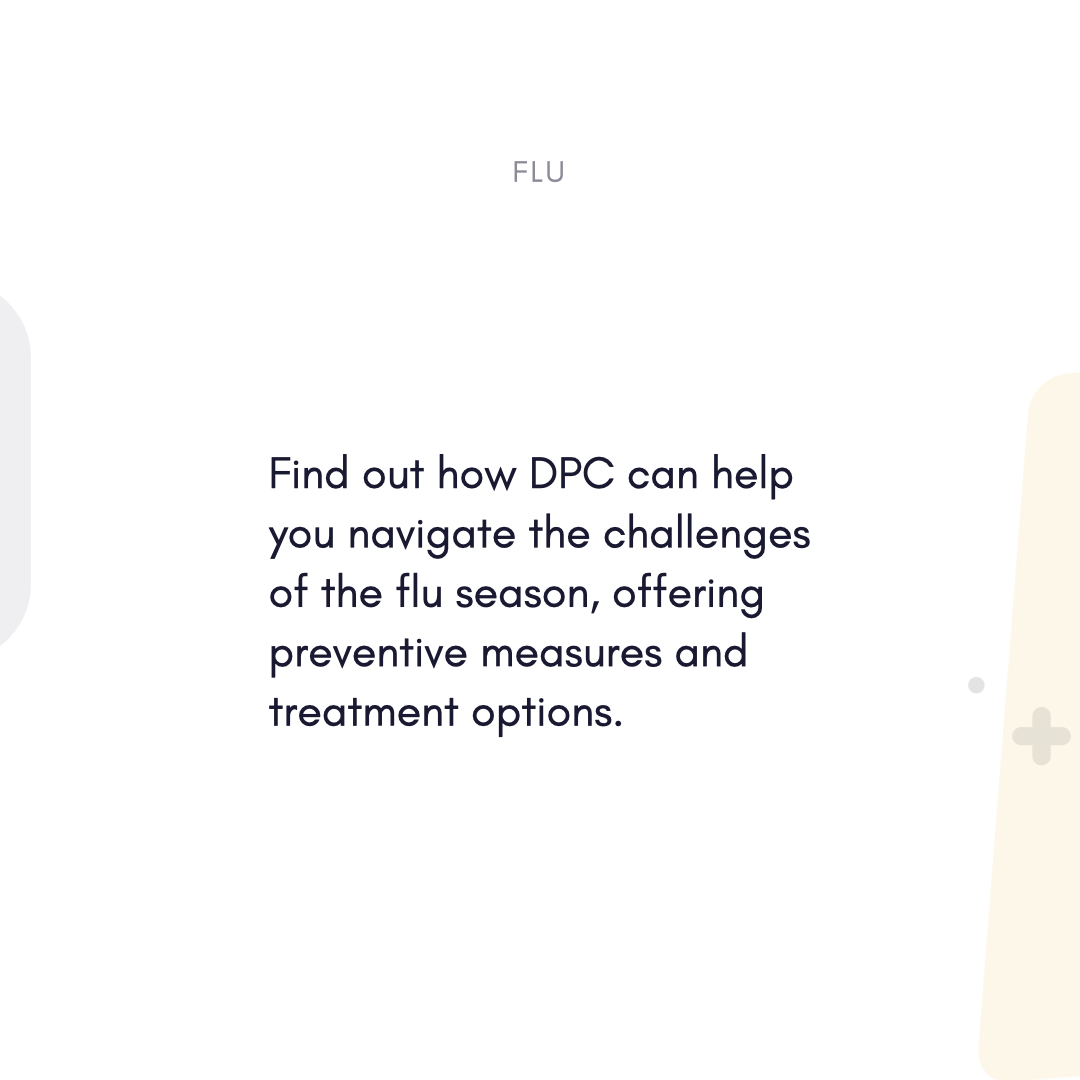Influenza (Flu) and Direct Primary Care (DPC): Rapid, Personalized Care for Faster Recovery
Affecting millions yearly, influenza is a highly contagious respiratory disease that causes fever, body aches, fatigue, and major complications like pneumonia. Direct Primary Care (DPC) provides a patient-centered approach to flu management, delivering timely diagnostics, customized treatments, and preventive strategies compliant with Infectious Diseases Society of America (IDSA) recommendations to lower severity and protect vulnerable populations.

Knowing Influenza: More Than a Common Cold
- Symptoms include: Sudden fever (>100.4°F), chills, muscular aches, cough, sore throat, fatigue.
- Common among young children: Vomiting and diarrhea.
- High-risk groups: Adults over 65; children under five; pregnant women; immunocompromised individuals; chronic disease patients (asthma, diabetes).
- Complications: Bronchitis, pneumonia, hospitalization.
How DPC Improves Flu Management?
A membership model (USD 50–150/month), Direct Primary Care (DPC) offers easily available, guideline-driven treatment to quickly address the flu:
- 1. Early Intervention and Antiviral Treatment
- Same-day experimentation: Fast flu/COVID-19/strep tests for correct diagnosis.
- Aligned Treatment from IDSA: Within 48 hours of symptoms, prescribe oseltamivir (Tamiflu®) or baloxavir (Xofluza®), so lowering severity by 40–60%.
- Over-the-counter/prescription fever reducers (acetaminophen) and cough suppressants sold wholesale help with symptoms.
- 2. Individualized Attention for High-Risk Patients
- Safe antiviral dosages plus OB/GYN coordination for pregnant women.
- For asthmatics, change inhalers; for diabetics, keep an eye on glucose.
- Seniors: Hydration helps prevent complications and high-dose flu shots help.
- 3. Preventive Measures and Instruction
- Get flu shots every season, high-dose for seniors included.
- Teach mask use, hand cleanliness, and isolation techniques.
- One telehealth option is remote symptom monitoring to stop in-person transmission.
DPC Benefits for Flu Patients
- 24/7 Accessibility: Direct provider call for dehydration or respiratory problems.
- Cost is Transparency: Generic Tamiflu® (USD 15–30) against USD 75+ retail.
- No copays for calls, visits, or follow-up.
- Talk about malnutrition, stress, or sleep problems compromising immunity holistically.
Customized Flu Management within DPC
- Risk-Based Treatment Schedules
- Low-Risk Adults: Rest, fluids, OTC meds home care advice.
- High-risk patients: Pulse oximetry tests; chest X-rays looking for pneumonia.
- Integration of Telehealth Tools
- Mild case virtual consultations help lower exposure risk.
- Fever trend and oxygen level remote monitoring.
- Following Recovery: Care
- Nutritional advice and strategies for managing fatigue.
- Automated flu shot reminders for the next season.
Real-Life Events: DPC Unleashed
- Case 1: 68-year-old Sarah avoided hospitalization using home oxygen monitoring and same-day antivirals.
- Case 2: After taking Tamiflu® within 12 hours of symptoms, Liam, 4: Fever cleared three days faster.
Why DPC Stands Out for Flu?
- Care and Speed Save Lives: Ninety percent of DPC clinics schedule same-day visits, which are essential for antiviral effectiveness.
- Early antivirals per recommendations: Should be given top priority in IDSA compliance to reduce complications.
- Family Care: Under one strategy, treat every household member to prevent outbreaks.
Gain Control of Flu Finish with DPC.
The flu need not ruin your life. Using DPC gives you:
- Same-day diagnosis and antivirals to help shorten illness.
- Customized treatment for family members at great risk.
- Tools for prevention to keep year-round healthy.






